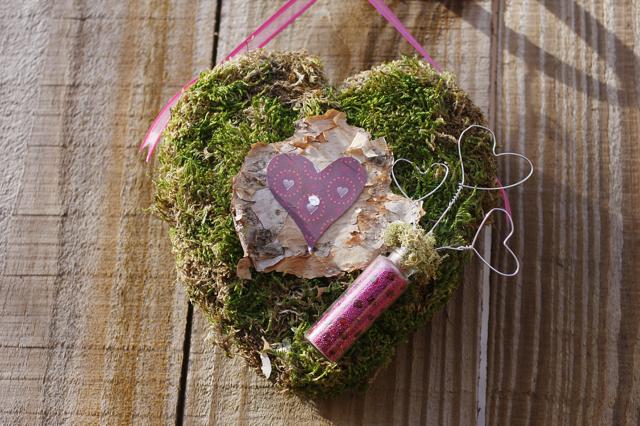Feb. 14 is coming up fast, and while Valentine’s Day has a colorful history dating back centuries, the occasion we celebrate today is primarily a creation of modern marketing.
Consider the following tidbits from the American Greetings Corp.:
• Worldwide, about 1 billion valentines are sent each year, making it the second busiest card-sending event of the year, after Christmas.
• More than 36 million heart-shaped boxes of chocolate are sold annually.
• Valentine’s Day is also tops for fresh-flower purchases (red roses are the No. 1 choice).
Clearly, Valentine’s Day is big business, with a substantial environmental impact: Laid end to end, for example, those 1 billion valentines would encircle the globe five times! And if the thought of consuming that many trees breaks your heart before you’ve even started, here are some ideas for how you can show Mother Earth some extra affection as well as your sweetie:
• Consider sending a virtual valentine using one of the many online services (E-Cards donates a portion of its earnings to environmental causes, and it’s free for users; so are the biodiversity-inspired valentines on The Nature Conservancy website: http://bit.ly/9h2FjH).
• Look for fair-trade or organic chocolate. The environmental standards for fair-trade items are quite stringent, and producers are audited to ensure water conservation, proper soil-management practices and safe handling of agrochemicals while avoiding things like deforestation and genetically modified crops. Not all organic items are fair-trade, but organic products are generally produced in an environmentally responsible fashion.
• Choose organic or locally grown plants (see the list of local producers at asapconnections.org). Lauri Newman, aka FarmGirl Garden Designs and Cut Flowers in West Asheville, produces all the flowers for her arrangements in season rather than buying them from a nonlocal wholesale distributor. In winter, she offers handmade cards, tags and arrangements using fresh-cut, dried and collected material, some of which she finds in the woods near her home and garden site.
Newman also incorporates reused objects in her work, such as the attractively rusty metal components she’s rescued from the scrap yard at Biltmore Iron and Metal Co. and repurposed as planting vessels or trellises.
• Give natural fragrances made with essential oils. Most commercial perfumes and colognes contain petrochemicals and other ingredients in a formula that’s generally a trade secret. Some are not environmentally friendly, and many can cause adverse reactions in some users.
• If you want to give jewelry — a whopping 10 percent of engagements are initiated on Valentine’s Day, according to American Greetings Corp. — consider preowned pieces or those purchased from jewelers using precious metals and gemstones sourced in an ecologically and socially responsible manner. “We only use 100 percent recycled ‘green’ gold, and our diamonds are from the Argyle Mine in Australia,” notes designer Susan West, who owns Blue jewelry gallery in Biltmore Village. A socially responsible supplier means no “blood diamonds” in the jewelry.
• Buy your loved one a gift certificate for a massage, a visit to a naturopath or spa, or some other locally available holistic therapy.
• Dine at a restaurant specializing in locally grown and/or organic food (such as the Laughing Seed in downtown Asheville or The Black Bird in Black Mountain). Better yet, make dinner at home using local ingredients, accompanied by an organic wine. Set the mood with candles made from soy or beeswax rather than paraffin, a petroleum byproduct.
• Love a gardener with a gift from Sow True Seed, which Marketing Director Cathryn Davis Zommer bills as “Asheville’s only open-pollinated, nonhybrid vegetable, herb and flower-seed company specializing in heirloom, certified organic and traditional Southern Appalachian varieties.” Seed packs are available in stores this week.
Cut the consumption
At an even deeper level, “going green” may mean a gift that sidesteps manufacturing, packaging and shipping entirely. If this approach speaks to you, consider these ideas:
• Plan a nature retreat. Pack in your own favorite food and drink, hunt up a lovely mountain overlook or private bower — and leave no trace when you depart.
• Give a gift that helps support wild nature education in your beloved’s name. The WNC Nature Center’s Adopt an Animal program funds habitat improvement for the critters they house. Such adoptions have helped provide major renovations to the cougar, bobcat and gray wolf habitats, according to the program’s website (wildwnc.org/friends/adopt).
• Conserve an acre of wild land on behalf of your loved one. The Nature Conservancy’s Adopt an Acre program (http://bit.ly/hOoR0e) supports the nonprofit’s land-protection efforts, whether close to home or in such far-flung exotic locales as rain forests and coral reefs.
• Give a gift that’s been loved once already. Asheville’s many resale shops are a rich source for clothing, jewelry, books, CDs, DVDs and more, and you can be as pragmatic or whimsical as you’d like.
— Susan Andrew can be reached at 251-1333, ext. 153, or at sandrew@mountainx.com.




Before you comment
The comments section is here to provide a platform for civil dialogue on the issues we face together as a local community. Xpress is committed to offering this platform for all voices, but when the tone of the discussion gets nasty or strays off topic, we believe many people choose not to participate. Xpress editors are determined to moderate comments to ensure a constructive interchange is maintained. All comments judged not to be in keeping with the spirit of civil discourse will be removed and repeat violators will be banned. See here for our terms of service. Thank you for being part of this effort to promote respectful discussion.